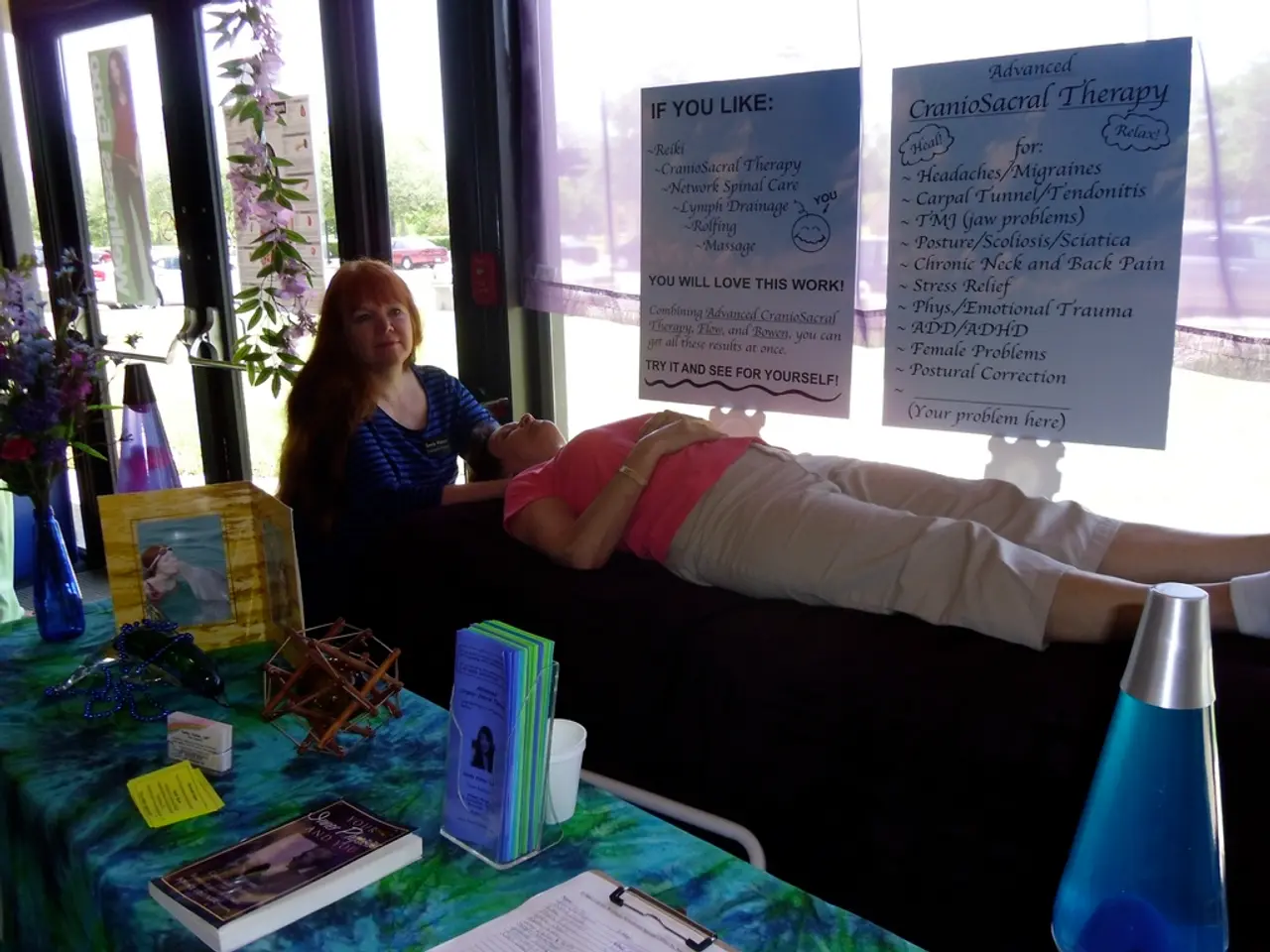"Parent deeply concerned about their daughter's emotional wellbeing, due to her feeling of despair"
In the past three months, 26-year-old Nadya has been grappling with depression following a breakup with her boyfriend, Alexander. Before meeting Alexander, Nadya had not had any serious relationships with men. The couple spent a significant amount of time together at Alexander's one-bedroom apartment, and Nadya initially believed they would be together forever.
However, the relationship took a turn for the worse when Alexander suddenly stopped responding to Nadya's calls for a week and was found with another woman. This event left Nadya in a state of heartbreak and despair.
Nadya's parents have been constantly by her side, providing support and preventing her from being alone. They are concerned about her emotional state and fear she may harm herself. Nadya's mother, having more life experience, warned her daughter about trusting Alexander too quickly.
To help Nadya through this difficult time without hospitalization, focus on a combination of emotional support, lifestyle adjustments, and accessible outpatient therapy options tailored to young adults.
Emotional Support
Listening without judgment is crucial in creating a safe and trusting space for Nadya to express her feelings. Avoid dismissive comments or unsolicited advice.
Outpatient Mental Health Services
Encourage and facilitate access to outpatient mental health services or therapy that fits Nadya's schedule and financial situation. Sliding-scale or online therapy options, group therapy, and university-affiliated programs can offer affordable alternatives.
Healthy Lifestyle Habits
Promote healthy lifestyle habits such as regular exercise, balanced nutrition, adequate sleep, and mindfulness or meditation practices. These habits are proven to improve mood and regulate emotions.
Intensive Outpatient Programs
If applicable, explore intensive outpatient programs (IOPs) designed for young adults. These programs provide structured group and individual therapy, skill-building, and psychiatric support, offering substantial support while allowing Nadya to live at home.
Monitoring for Worsening Symptoms
Monitor for worsening symptoms or signs of suicidal thoughts, and seek urgent care if needed.
Creative Outlets
Encourage creative outlets like journaling or art to express emotions safely.
Partial Hospitalization Programs
If symptoms require more structure without full hospitalization, consider partial hospitalization programs (PHP) or intensive outpatient programs (IOPs). These programs provide intensive, evidence-based treatments such as Cognitive Behavioral Therapy (CBT) and Dialectical Behavioral Therapy (DBT) aimed at stabilizing mood and coping skills, but in a non-residential format.
Supporting Nadya through this period involves patience, compassion, and helping her access structured professional services that fit her needs and preferences. If affordability or access is a concern, look into sliding-scale fee therapists, online therapy platforms starting around $49 per session, group therapy, or university training programs which may be free or low-cost.
In summary:
- Create a supportive, understanding environment.
- Encourage and help arrange affordable outpatient therapy or mental health support groups.
- Support and model healthy lifestyle behaviors.
- Promote use of coping tools like mindfulness and creative expression.
- Use intensive outpatient or partial hospitalization programs if symptoms require more structure without full hospitalization.
This multi-pronged approach aligns with current best practices for helping young adults with depression post-breakup, aiming to restore stability and resilience without the need for inpatient care.
- Nadya's emotional state requires a focus on science-based mental health treatments, such as cognitive behavioral therapy and dialectical behavioral therapy, as a part of her healing process.
- To boost Nadya's mood and emotional regulation, promoting health-and-wellness practices like regular exercise, balanced nutrition, adequate sleep, and mindfulness or meditation is essential.
- Given the importance of nurturing mental health, love-and-dating relationships should be approached with caution and an understanding of the potential impact they can have on mental well-being, as demonstrated in Nadya's experience.




